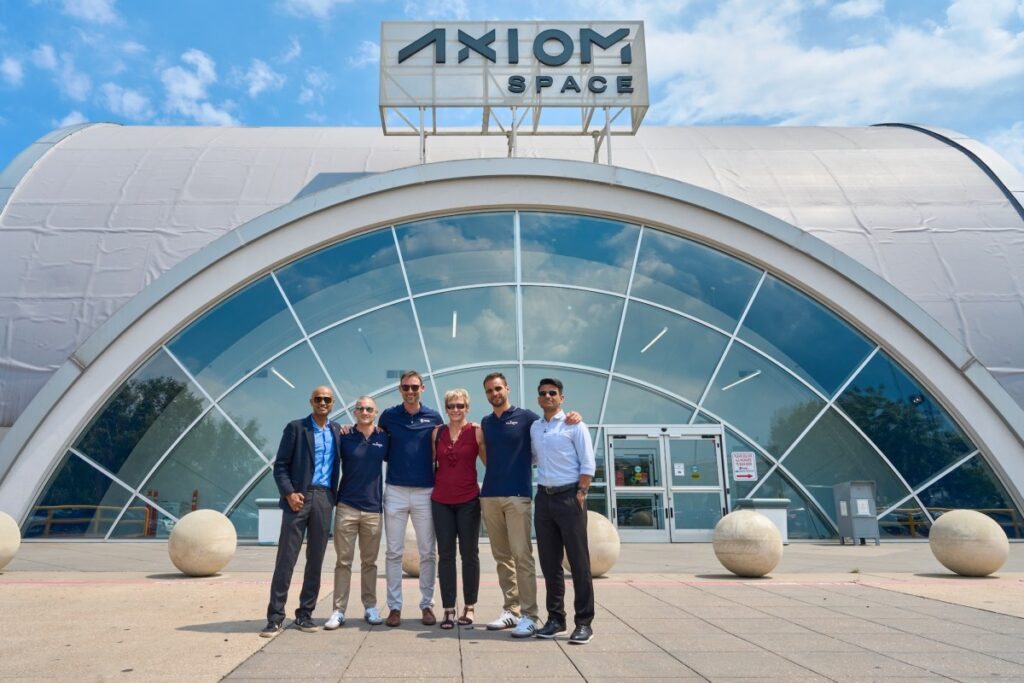Axiom Space plans to launch its fourth mission on Tuesday, June 10 — a mission that CEO Tejpaul Bhatia described as “a little bit of a victory lap.”
In addition to being the private space company’s fourth mission to the International Space Station, Bhatia said Ax-4 will be Axiom Space’s second “fully national mission” where all the customers are national governments. In fact, the company has also dubbed this mission as one that will “realize the return” to human spaceflight for India, Poland, and Hungary, who will each have an astronaut on the flight.
In addition, Bhatia said this will be the company’s first “break even mission” after losing money on the first three. he emphasized that these ISS missions are “not our business model” — the company plans to add commercial modules to the ISS that eventually detach and become the free-flying Axiom Station.
At the same time, Bhatia said these initial missions bring in revenue and help illustrate the demand for commercial space flight. Plus, they create inspirational “Apollo moments” for each of the client countries.
“It shows how space is opening up because of commercial companies,” he said. “For all three countries, this will be their second astronaut ever. And it shows the switch from Space Race 1.0 to Space Race 2.0.”
Thus far, Axiom Space’s missions have used SpaceX Dragon spacecraft to bring astronauts to the ISS. The company’s role, Bhatia said, is to serve as a “marketplace integrator and broker” that can pull these missions together. As the commercial space industry expands, he predicted that there will be enormous opportunities in continuing to serve as the “managed marketplace” for space, because “no one can do this alone.”
“To become multi-planetary, that’s not something where one country has all the capabilities,” he added.
The prospects for commercial space travel have looked less certain in the past few days, after acrimony between President Donald Trump and SpaceX CEO Elon Musk led Trump to declare he was canceling contracts with Musk’s companies and Musk to say he was decommissioning the Dragon spacecraft. (He later seemed to back down.)
Axiom Space declined to comment on how the Trump-Musk feud might affect the industry, but when Bhatia and I spoke in late May, I asked him a related question about the political landscape — namely, whether potential budget cuts at NASA and more broadly across scientific research threatened the optimistic vision that he was presenting.
“It’s not that government investment will open space, “ Bhatia said. “They’ve already done it. [Now] it’s the entrepreneurs who will use the commercial platforms to build the bridge to the next stage.”
The CEO is actually relatively new to his current role. When we spoke, Bhatia told me it was only his fourth week on the job after replacing the company’s co-founder Dr. Kam Ghaffarian as chief executive. (Ghaffarian continues to serve as the company’s executive chairman.)
But Bhatia — who was previously an executive at Google Cloud — had already spent four years as the company’s chief revenue officer. While his career hadn’t been particularly space-focused before joining Axiom Space, he said that since he was younger, “when I was daydreaming, it was always about space.”
And like any good space company CEO, Bhatia has hopes of eventually traveling to the final frontier himself.
“I would love to go,” he told me. “I have no doubt that we will all go.”

